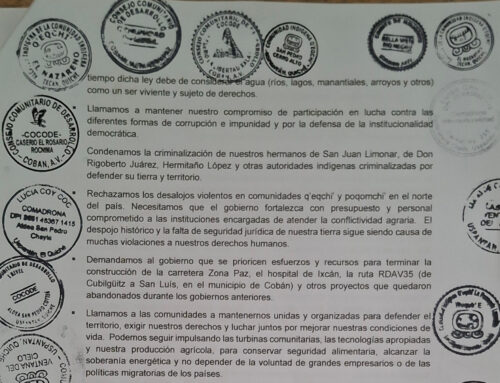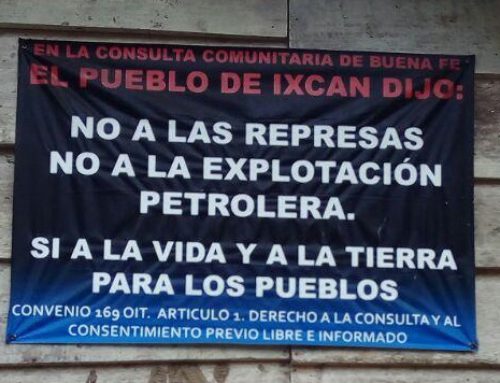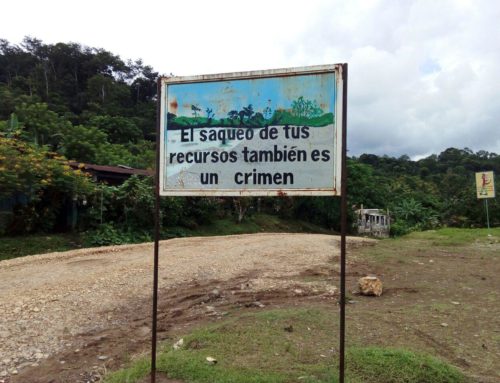Following the “emergency contract” for geological feasibility studies signed between Guatemala’s National Electrification Institute (INDE) and Brazilian company Intertechne Consultores S.A. last November, communities organized against the Xalalá Dam publicized the controversial transaction and undertook strategic meetings in Guatemala City to draw attention to the contract. One Congressman and President of the Congressional Integrity Commission with whom the communities met, Amílcar Pop, denounced anomalies and called for an investigation of the contract granting process.
 |
| The Congressional Integrity Commission meets with INDE in a public hearing. Photo: El Periódico |
On April 7, the Congressional Integrity Commission carried out a hearing at the request of the General Comptroller’s Office (CGC) to present numerous irregularities in the license granting process between INDE and Intertechne. In a detailed account of the anomalies, the CGC explained that the contract with Intertechne was signed before the company was registered to operate in Guatemala. Intertechne did not establish a local subsidiary until January 29, 2014, 60 days later. The CGC also denounced the direct payment and contracting of the Brazilian company by INDE instead of going through the Public Procurement Law, as required.
The same law states that down payments paid to companies by the state should not exceed 20% of the total cost. According to the CGC, in this case, INDE paid $1.4 million to Intertechne, instead of the approximately $995 thousand required by law based on the total contract value. The CGC also denounced the weak and questionable terms of the contract, which states that the company cannot be evaluated and that it guarantees that the outcomes and requirements will favor INDE. Congressman Pop called for the reversal of the transaction in order to recuperate partial payment for the contract, already delivered to the Brazilian company, which he considers to have been spent illegally.
Finally, the inquiry reached back to the bidding phase, during which two processes, in 2007 and 2012, were abandoned due to a lack of interest on the part of the companies. The CGC pointed out that during the second process in 2012, INDE required interested companies to pay $10,000 just to participate, which unsurprisingly discouraged all possible bidders. The lack of interest in the contract was one of the principal excuses employed by INDE manager Marinus Boer to justify the need for the “emergency contract” process with Intertechne. The CGC went on to point out that the decision lacked an evaluation of the company’s capacity to carry out the geological study.
Former INDE manager Marinus Boer resigned late last week, just before the Congressional Integrity Commission hearing, citing personal problems. His replacement, Jorge Stalling, assured that despite the accusations the contract will not be suspended. Auditors are continuing to investigate and plan to present the case to the Attorney General’s office in order to file a formal, penal accusation.
According to the Legal Assistance Anti-corruption Office (Alac) and Prensa Libre, INDE has been accused of making other irregular purchases totaling more than $11 million in 2013 alone. Alac noted having received “constant complaints” regarding contracts awarded by INDE during the administration of previous general manager, Marinus Boer.




Leave A Comment